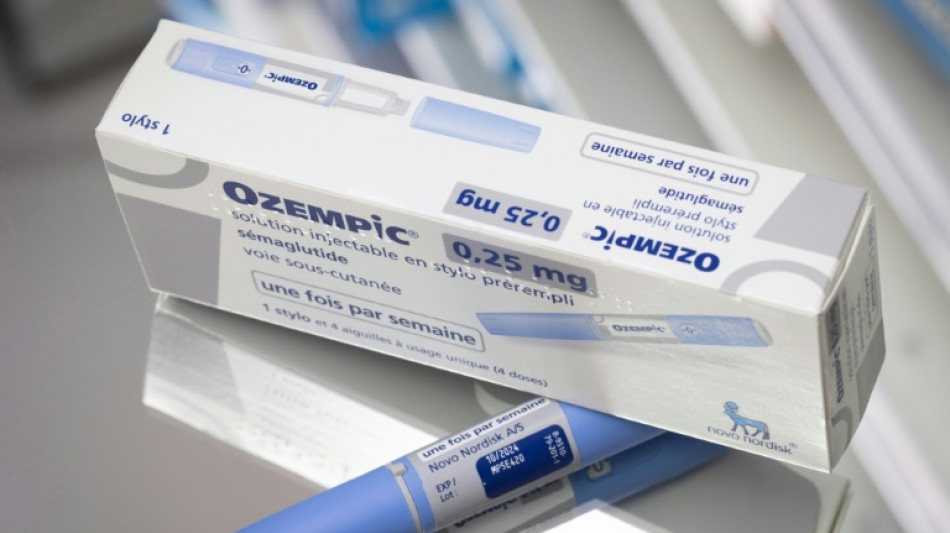
SCS
0.2300

Drugs like Ozempic, which have become increasingly popular for losing weight, heighten the risk of certain severe gastrointestinal problems including stomach paralysis, according to a large study published Thursday.
The paper, published in the Journal of the American Medical Association (JAMA), looked at a class of drugs called GLP-1 agonists that includes the brands Wegovy, Ozempic, Rybelsus and Saxenda.
It then compared the rate of serious side effects to another class of weight loss drug, bupropion-naltrexone.
The GLP-1 agonists were associated with an almost four times increased risk of stomach paralysis, a nine times higher risk of pancreatitis and four times greater risk of bowel obstruction.
These conditions can cause hospitalization and require surgery, depending on their severity.
"Given the wide use of these drugs, these adverse events, although rare, must be considered by patients thinking about using them for weight loss," said lead author Mohit Sodhi, a medical student at the University of British Columbia in Canada, in a statement.
"The risk calculus will differ depending on whether a patient is using these drugs for diabetes, obesity or just general weight loss," he added. "People who are otherwise healthy may be less willing to accept these potentially serious adverse events."
Originally developed for managing Type 2 diabetes, GLP-1 agonists have soared in popularity in recent years as a means to lose weight, mainly through "off-label" use.
Saxenda and Wegovy were approved for weight loss in 2020 and 2021, but the clinical trials used to greenlight them involved too few people with too short a follow-up time to detect very rare events, the researchers said.
Epidemiologist and co-author Mahyar Etminan said that while there had been anecdotal reports of some patients using these drugs for weight loss and then having repeated episodes of nausea and vomiting as a result of stomach paralysis, the current study was the first to examine the question at a larger scale.
The authors trawled through US patient records searching for people prescribed liraglutide or semaglutide -- the two main GLP-1 agonists -- or bupropion/naltrexone, a non GLP-1 weight loss medication, to see how many went on to develop certain gastrointestinal conditions.
Their analysis included patients with a recent history of obesity, but excluded those with diabetes or who had been prescribed another antidiabetic drug. Just over 5,400 records were included in the final analysis.
"The results from this study highlight how important it is that patients access these drugs only through trusted medical professionals, and only with ongoing support and monitoring," said Simon Cork, a senior lecturer at Anglia Ruskin University, who was not involved in the research.
"It is vital that regulation is tightened to ensure that these drugs are only prescribed under the right circumstances."
I.Menon--DT